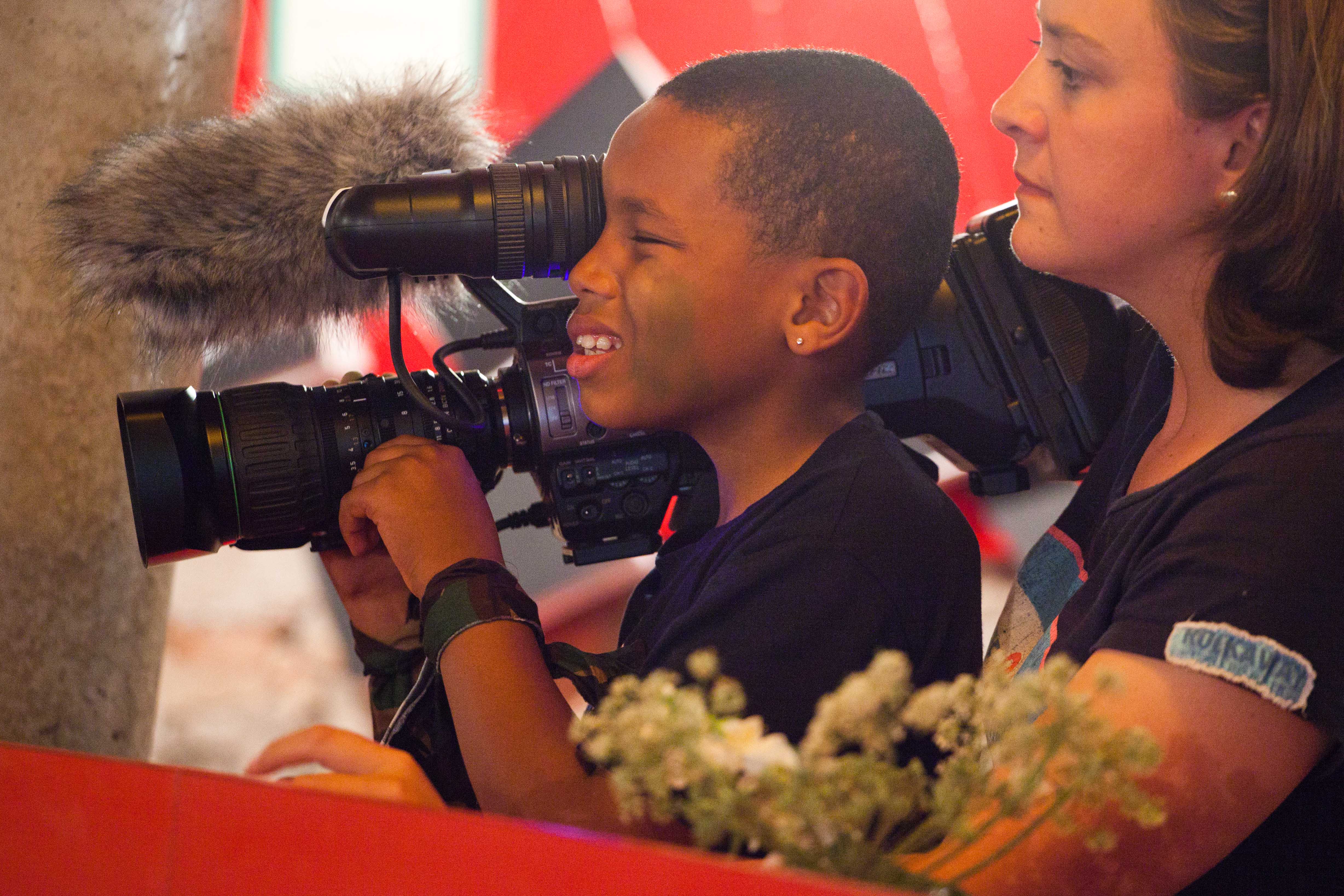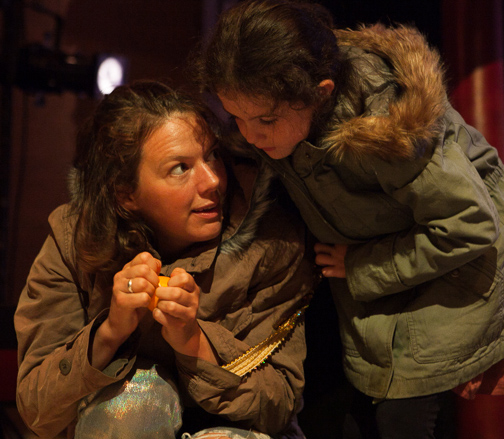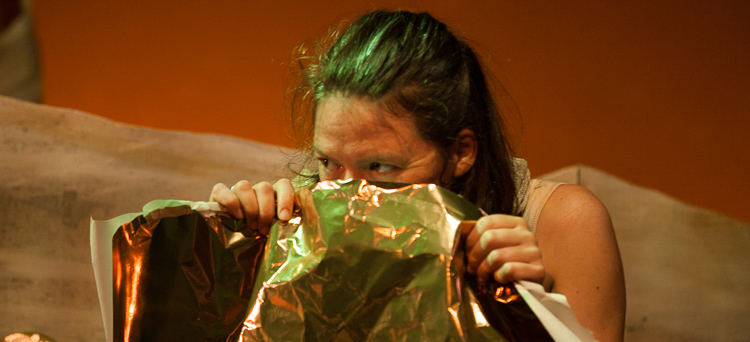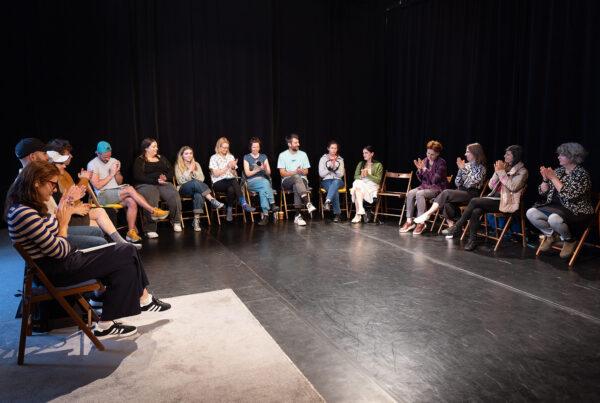School Without Walls
It is no easy task reaching out to children so that they can see great plays. In England, every second of a child’s life has a prescribed, educational learning outcome attached to it, yet only through schools can we reach the vast majority of young people.
In England, every second of a child’s life has a prescribed, educational learning outcome attached to it, yet only through schools can we reach the vast majority of young people.
Still adamant that we can make a difference, our Creative Learning Department aims to establish a two-way dialogue with teachers. But before long, they are delivering workshops on The Greek Gods and leading historical guided tours of the theatre. How effortlessly do we mirror the state of the Education system that adopts a top-down, knowledge-based approach to teaching? And how inadvertently can we neglect our core purpose of ‘children witnessing art’?
If we agree that in any well-crafted play, the audience and the characters in the play start off from an equal position of ignorance and knowledge, that we should neither learn from the play, nor should the play make a pretence of asking our advice, then can we not adopt this conceit in the learning that we undertake with children?
Working with 5x5x5=creativity as a Research Partner, we set about exploring how a different approach to ‘schooling’, including watching plays, could be investigated. Adopting their approach which draws on the philosophy of Reggio Emilia, and responding to a local head teacher’s request to ‘do school differently’ – a ground breaking programme was hatched: School Without Walls.
A class is engaged in a residency at a cultural centre for a number of weeks, where they ‘do school differently’ every day. The ‘teaching’ adults embark upon a pedagogically transformational journey, shedding their mantle of the expert, putting art, observation and reflection at the heart of their practice, working alongside artists, mentors and documenters. Each morning, when we walk into the room, we know we must legally cover the National Curriculum but none of us knows where we will end up at the end of the day; we learn to follow the child’s fascinations and to draw our next ideas from these. We still get good coverage of the curriculum: creativity and high standards are not polarised.
Through undertaking this programme for 5 years, a more thorough examination of the power of the play to inspire a young person’s thinking and learning was explored. The children would see the play, maybe more than once, expanding upon their observations, strengthening their memory and deepening their interpretation. Because we now realise that anything can happen, that the play permissibly has no learning outcome, we can boldly lead ourselves side by side into whatever territory is opened up by the play. Thus, the play is the beginning, the middle and the end. Learning is everywhere.
 One of the artists we employ on School Without Walls, live artist Lucy Cassidy, was recently invited by the egg to create a new play; her first, for an early years audience. Drawing on her School Without Walls experience, research into Belgian theatre and her fascination with the ‘super-live’, the result was Can You See Me? An atmospheric experience in which a dance artist and 2 local school children, in a suggested, amorphous woodland setting, play out a scenario in which the girl and her adult are safely contained behind a wall; a wall that has peculiar windows of varied shapes (designed by another School Without Walls artist, Edwina Bridgeman,) that the girl can peep out of, because she is not afraid of being seen. There is a boy on the outside who spies on the girl and entreats her to come out and play. In a relationship reminiscent of Beckett’s Pozzo and Lucky, the girl breaks free from the adult and plays spontaneously with the boy. The adult watches and contributes materials for their play, each one adding another layer of possibility to the children’s free-play. Eventually, the adult joins them in a rare, delicious moment, dancing trancelike and childlike with the boy and the girl. In the end it is joyful and celebratory. It can mean many things: it is non-linear. Each performance is different, as the children improvise their play and conversation with one another. It is, in fact, the living embodiment of our newly defined school process: collaborative, open-ended, free and…enjoyable.
One of the artists we employ on School Without Walls, live artist Lucy Cassidy, was recently invited by the egg to create a new play; her first, for an early years audience. Drawing on her School Without Walls experience, research into Belgian theatre and her fascination with the ‘super-live’, the result was Can You See Me? An atmospheric experience in which a dance artist and 2 local school children, in a suggested, amorphous woodland setting, play out a scenario in which the girl and her adult are safely contained behind a wall; a wall that has peculiar windows of varied shapes (designed by another School Without Walls artist, Edwina Bridgeman,) that the girl can peep out of, because she is not afraid of being seen. There is a boy on the outside who spies on the girl and entreats her to come out and play. In a relationship reminiscent of Beckett’s Pozzo and Lucky, the girl breaks free from the adult and plays spontaneously with the boy. The adult watches and contributes materials for their play, each one adding another layer of possibility to the children’s free-play. Eventually, the adult joins them in a rare, delicious moment, dancing trancelike and childlike with the boy and the girl. In the end it is joyful and celebratory. It can mean many things: it is non-linear. Each performance is different, as the children improvise their play and conversation with one another. It is, in fact, the living embodiment of our newly defined school process: collaborative, open-ended, free and…enjoyable.
By Kate Cross
Director of the egg, Theatre Royal Bath; Chair Elect of TYA UK
http://www.schoolwithoutwalls.org.uk/




